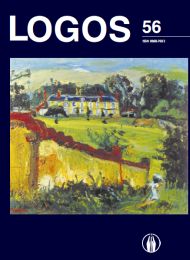Valios Laisvés Koncepcija Bernardo Klerviečio Traktate Apie Malonę Ir Laisvąjį Sprendimą
The Concept of Free Will in the Treatise by Bernard of Clairvaux Concerning Grace and Free Will
Author(s): Dalia Marija StančienėSubject(s): Anthropology, Metaphysics, Philosophy of Middle Ages, Philosophy of Religion
Published by: Visuomeninė organizacija »LOGOS«
Keywords: Bernard of Clairvaux; free will; liberum arbitrium; determination; mysticism; grace;
Summary/Abstract: In this article the concept of free will is analyzed as it is presented in the treatise by Bernard of Clairvaux Concerning Grace and Free Will. In the treatise Bernard of Clairvaux conjoins the elements of ascetics and mysticism; he mixes practice with theory, and he gives a new interpretation of the role of philosophical contemplation in the quest of truth. He focuses attention on the will and considers it from the prespective of the liberum arbitrium. Bernard of Clairvaux speaks of three species of freedom: natural (naturae); that, given by grace (gratiae); that of life or glory (vitae vel gloriae). He derives them from the Trinity by means of analogy. This classification of freedom enables him to analyze the essence of man anthropologically, psychologically and theologically. The three species of freedom establish the possibility to escape necessity, sin, and suffering. The natural freedom, which man still possesses, is realized by means of liberum arbitrium, the foundation of every free act. The quality of liberum arbitirium makes an actor virtuous or sinful, worthy to be priced or punished. The two remaining species, according to Bernard of Clairvaux, are lost because of the original sin. That is why man is prone to obey carnal pleasures in spite of rational considerations and admonitions. Man needs gratuitously given divine grace in order to overcome sinful desires.
Journal: LOGOS - A Journal of Religion, Philosophy, Comparative Cultural Studies and Art
- Issue Year: 2008
- Issue No: 56
- Page Range: 39-49
- Page Count: 11
- Language: Lithuanian

